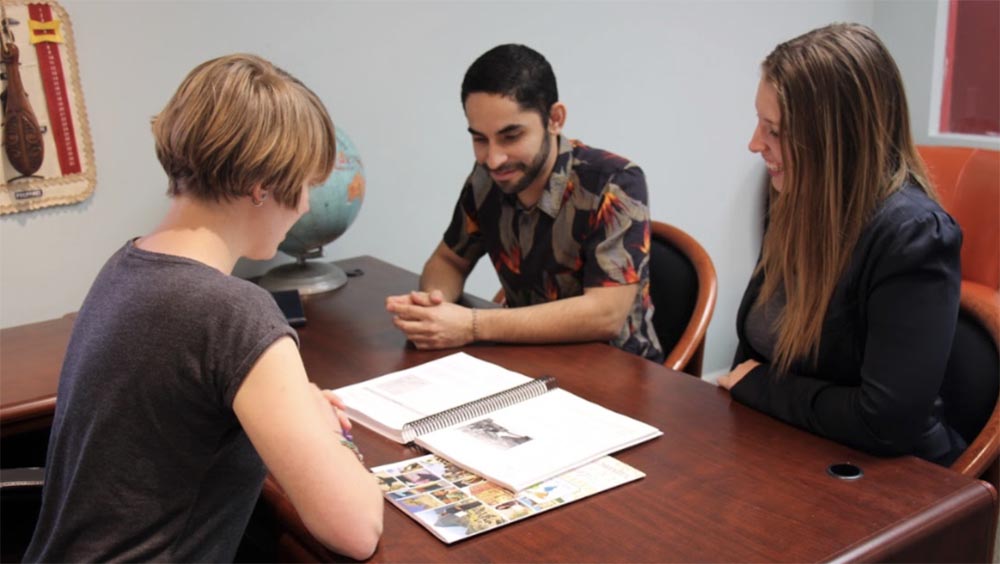What To Know Before Moving to Spain to Teach English [Ultimate Cheat Sheet]
So you want to become an English teacher in Spain but don't know where to start? We've crafted this ultimate guide to help you realize your goal of teaching in Spain.
Written By: John Bentley | Updated: June 29, 2023
Written By: John Bentley
Updated: June 29, 2023
![What To Know Before Moving to Spain to Teach English [Ultimate Cheat Sheet]](https://cdn2.hubspot.net/hub/67369/hubfs/Allen-Tunstall%28II%29-Barcelona-Spain-Rooftop-Iberostar%2815%29-2.jpg?width=730)
**Please note that as of December 2019, the visa process for Spain has changed. Speak to your Admissions Advisor at International TEFL Academy (ITA) for the most up-to-date information**
What Do You Need to Know for Teaching in Spain?
Key Info to Help You Teach in Spain
Getting a job teaching English in Spain takes a lot of planning and knowledge about the teaching market, especially for Americans. Here are some key items you need to know in order to ensure a smooth transition to life abroad and successfully secure a teaching job.
-
Hiring Seasons: September/October & January are prime hiring periods.
-
Visas: The type of visa will depend on your nationality and your job.
-
Locations: Madrid is the top job market; Barcelona & Bilbao are other top options.
-
Finding Jobs: Plan on being on the ground in Spain to interview during hiring seasons.
-
Interviewing: Be prepared to interview face-to-face with your TEFL certificate & sample lesson plans in hand.
-
Resources: From expert advisors to local job boards, ITA grads receive all the resources they need to get a good job teaching English in Spain.
1. Hiring Seasons in Spain are Critical
We highly recommend arriving in Spain to interview in person in mid-September or October. Bear in mind that early October is the beginning of a new term in Spain as many language schools reopen from summer vacations.
A secondary hiring period begins in the second week of January and runs for several weeks.
It’s not impossible to get jobs in other months, but there are fewer jobs available. English teachers in Spain will need to plan to take on private tutoring initially until the next job season starts and should plan on arriving with additional savings if traveling to Spain outside of the primary hiring seasons.
The reason jobs are open these two times of year is due to many teachers finishing their contracts or semester term after living abroad for one or two years.
Two other notes about hiring in Spain: Summer camps typically recruit & hire in Spring. Cultural Ambassadors Program applications are due in spring.
Read more about the hiring seasons in countries around the world in our Country Teaching Chart.

2. Know Your Visas For Teaching in Spain
If you are an EU citizen, you’re legally allowed to work in Spain and you won’t need to worry about the visa you enter on.
Visa options for Americans to work legally are limited, but the demand for native English teachers is strong, as Spain is one of the largest English teaching markets in Europe. When it comes to teaching in Spain as an American, you need to consider your options, as some visas take months of planning.
Work Visa
Getting this type of visa is extremely rare. The Spanish government makes it extremely difficult for an employer to sponsor a visa for an English teacher. While other European countries offer work visas fairly easily, Spain does not. To see what visa options are available, keep reading below.
Question: So if it’s nearly impossible to get a work visa, how do Americans teach in Spain?
Answer: Two main options: A Student Visa, while simultaneously enrolled in classes in Spain, or working on an expired Tourist Visa. (We’ll get to you Aussies, Canadians and New Zealanders soon.)
Student Visas
A Student Visa allows someone the legal right to work for up to 20 hours a week while on that visa. A few options are:
Enrolling into classes: Enrolling in a university or in an accredited language school and taking Spanish language classes is another way to get a student visa, which legally allows the recipient to work in Spain. This option requires around 3-4 months of advanced planning in addition to the cost of the language courses which cost $3,000 USD - upward, depending on the duration of the visa (often paid in full in advance).
Government teaching programs: Government programs provide participants with student visas. The most popular program is the Cultural Ambassador Program for Teaching English in Spain, which requires applicants to apply many months in advance before they plan to head to Spain.
Working on an Expired Tourist Visa
In the past, the majority of Americans teaching English in Spain worked under the table on tourist visas, but this is no longer the case as authorities have cracked down and schools are far less likely to employ teachers illegally on a tourist visa.
Working Holiday Visa
Canadians, Australians, Canadians, New Zealanders you are in luck! These nationalities have a special work agreement with the country of Spain (and other countries) and can apply for a Working Holiday Visa and those with EU citizenship have the legal right to work in Spain.
Read more about each visa option below:

3. Picking the Best Cities to Teach English in Spain
The city you move to in Spain (and the visa you enter on) will have implications for your job search. Barcelona and Madrid present the largest markets for English teachers in Spain and are among the best places to teach English in Spain – especially for those working on tourist visas.
Madrid
The largest city in Spain has the most language schools and the greatest need for English teachers. Some of the schools will only hire those with a work permit (EU Citizens) or on a Student Visa however there are a large number of language academies that will hire an American without a work permit. Many of these schools will have their American teachers working out of the office on assignment with private contracts for business teaching, sometimes at a client company’s office.
If you are teaching on a Student Visa you will have a lot more options. However, the language schools may not know how to process the paperwork to employ you. If you are on the Student Visa Program in either Madrid or Barcelona, the recommended language schools have already been working with our partners to fill out the hiring paperwork.
Barcelona
You can get a student visa at approved language centers or universities and work legally at a language school. If you’re headed to Barcelona as an American and not on a working visa, you should expect to work as a private tutor, as the vast majority of schools in Barcelona will not hire you without a legal work visa.
Many ITA alumni in Barcelona work as private tutors and/or teaching English online, which typically pays up to $20 an hour.

4 & 5. Finding Jobs & How to Line up Job Interviews
English Teaching Jobs in Spain
It may sound daunting to walk into a school and ask for a job instead of emailing a resume in and getting an interview. That’s just the way the vast majority of schools work in most of Western Europe and most of Latin America. If you follow Rule # 1 of going during the hiring season, it all works out fine.
You should expect to interview face-to-face at a language school immediately before the school semester starts. While it’s good to go the extra mile to send out your resume and cover letter before you arrive in Spain (you may get lucky and someone will respond), the most effective way to get interviews and get hired with language schools in Spain is to go to schools directly in-person to inquire about teaching opportunities during the hiring season.
You should also expect to interview with a resume, cover letter, TEFL certificate and lesson plans in hand as an audition and ask for the job. It’s very common to interview one day and start working within a few days. Expect to talk to several employers a day while interviewing.
NOTE: Except for government programs for teaching in public schools, you should not expect to have a job lined up far in advance from a Skype interview in another country.
The demand for English teachers in smaller towns is much lower than it is in larger cities due to the amount of language schools there. Have a backup plan if you head to a smaller city or consider government programs that place teachers throughout Spain.
Read more: How to Get an English Teaching Job in Spain
.
Teach English Online
Whether you teach English in Spain or elsewhere, you can always increase your earnings and get a head start of setting up paid teaching hours by teaching English online. With demand for online English language instruction skyrocketing worldwide, teaching English online provides TEFL-certified teachers with opportunities to earn extra pay virtually any time from anywhere in the world. Most teachers are able to make at least $10-$20 (USD) an hour & hours are very flexible.
Another key advantage is that you can begin teaching and making money before you even head abroad, which is great for covering the start-up costs of your move and ensuring that you can have an income pretty much right away when you get to Spain.
6. Job Resources and Live ITA Staff Assistance
ITA has compiled a comprehensive collection of resources to make sure your job search is successful.
As an ITA graduate, you will enjoy access to hundreds of listings of language schools throughout Spain, job websites specific to each city, tutoring job boards, and listings of schools referred to ITA by our alumni. ITA has done the heavy lifting to find the resources our graduates need to do the leg work and ask for the jobs, network with alumni and/or post their tutoring services on the right boards.
Make sure to check out alumni Q&As and articles and the ITA Alumni Spain Discussion Group on Facebook which has more than one thousand members who are actively networking and sharing experience about teaching English in Spain. Enrolled students should take advantage of the Job Search Guidance Manual, ITA’s guide for finding a job in Spain, resume and cover letter services with the Student Affairs Department, ITA’s Spain school finder, and live and taped webinars and e-books on teaching English in Spain. The Student Affairs team is always available for ITA alumni looking for job search assistance.
Success is in the details, planning and follow through: In summary, our ITA graduates find work abroad because they do the leg work necessary to be successful. They have spoken to an ITA admissions advisor; they thoroughly read and understood the guidelines and strategies of the job market in Spain; and they follow & use the advice, guidance & resources that ITA has provided.

Super Pro Tip: Read each of the above referenced articles in this guide to become a “Pro Job Hunting” English teacher and know your stuff to have a successful experience teaching English abroad in Spain.
Read Further:
- How Do Americans Get Visas for Teaching English Legally in Europe?
- Can Americans Teach English in Europe?
- What is the Schengen Region in Europe?
Posted In: Teach English in Spain, Teach English in Europe, Teach English Abroad Visas, Teach English in Spain Must Read
John Bentley
Co-Founder at International TEFL Academy
John Bentley is Co-Founder & Senior Writer for International TEFL Academy (ITA), the world leader in TEFL certification for teaching English abroad. A graduate of Harvard University and the Medill School of Journalism at Northwestern, John is a recognized expert in the field of TEFL. His articles have appeared across the field's top websites, including GoAbroad.com, StudyAbroad.com, InterExchange, GoOverseas.com, Adventure Teaching, & many others. He has also spoken as an expert on Teaching English Abroad & TEFL certification at major conferences like MeetPlanGo and Lessons from Abroad (LFA) in Portland & San Diego.
Want to Learn More About Teaching English Abroad & Online?
Request a free brochure or call 773-634-9900 to speak with an expert advisor about all aspects of TEFL certification and teaching English abroad or online, including the hiring process, salaries, visas, TEFL class options, job placement assistance and more.








